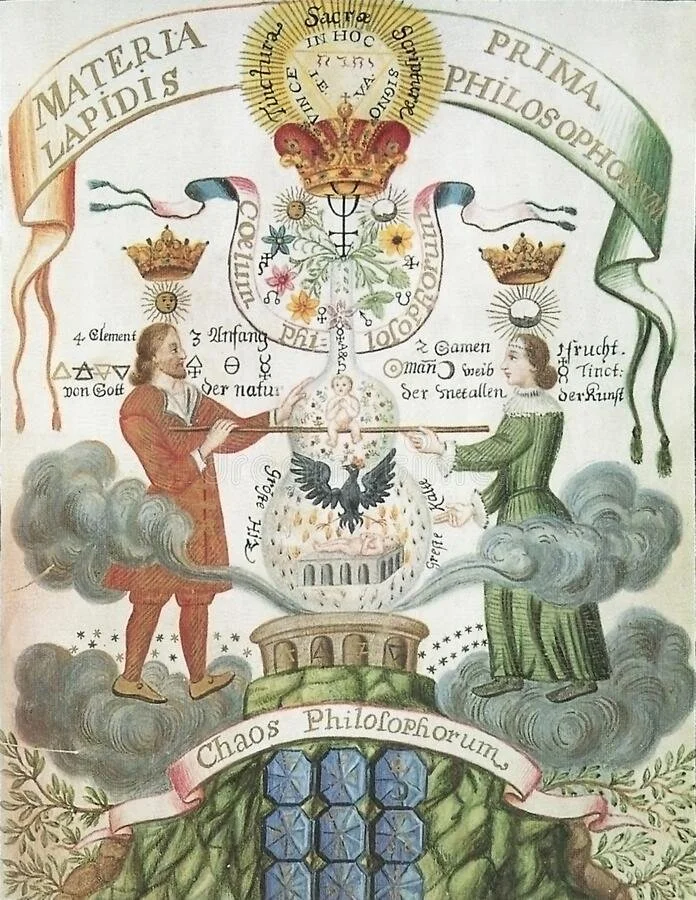WHAT IS ALCHEMY
Alchemy is most recognized for its aim to turn base metals into gold. While many take this notion literally, it is rather a metaphor for transmuting the mind of ignorance into that of spiritual wisdom.
Alchemists indeed did experiment with minerals, metals and plants in their private laboratories, which informed them of the properties of these substances. Such insights led them to uncover modus operandi of the natural world. But how does this relate to spiritual development?
There is an ancient axiom: “As within, so without; as above, so below” implying that microcosm is a reflection of the macrocosm, or that humanity is a reflection of God and the Universe. Therefore it follows that it is absolutely possible to derive an understanding of the human soul and mind by observing phenomena in nature, and by extension in the lab.
For instance, alchemists would subject materials to heat and fire
to arrive at their purified form. In the same manner, it was observed that for individuals to become spiritually purified, they had to undergo
many ordeals - a type of fire in their own right.
The alchemical slogan “gross must pass through fire” indicates that ordeals (fire) are a necessary step in the process of our psycho-spiritual refinement and evolution.
Alchemy is about the transmutation of energy - taking primal matter and turning it into its perfected form; or taking that which is unrefined and profane, and turning it into something spiritual and sacred. Equally, we can take the very energy driving our mental afflictions, such as fear and anger, we can strip it from its conceptual mechanism, and use it toward some constructive end. Thus, the energy of anger becomes transmuted into fuel and directed toward the practice of spiritual disciplines and the pursuit of Enlightenment.
Ancient alchemy branched out giving birth to medicine, chemistry, and metallurgy. Dr. Peter J. Foreshaw, a modern historian of Western Esotericism, distinguishes many different types of alchemy today, some of which are transmutative, medical, spiritual, archetypal, psychological, philosophical, etc.
Carl Gustav Jung himself was fascinated by medieval alchemy, and produced a large body of work investigating alchemy in the context of what he called “Individuation”, referring to the integration of the whole personality.
“It is precisely because our present life is so inseparably linked with desire that we must make use of desire’s tremendous energy if we wish to transform our life into something transcendental.”

